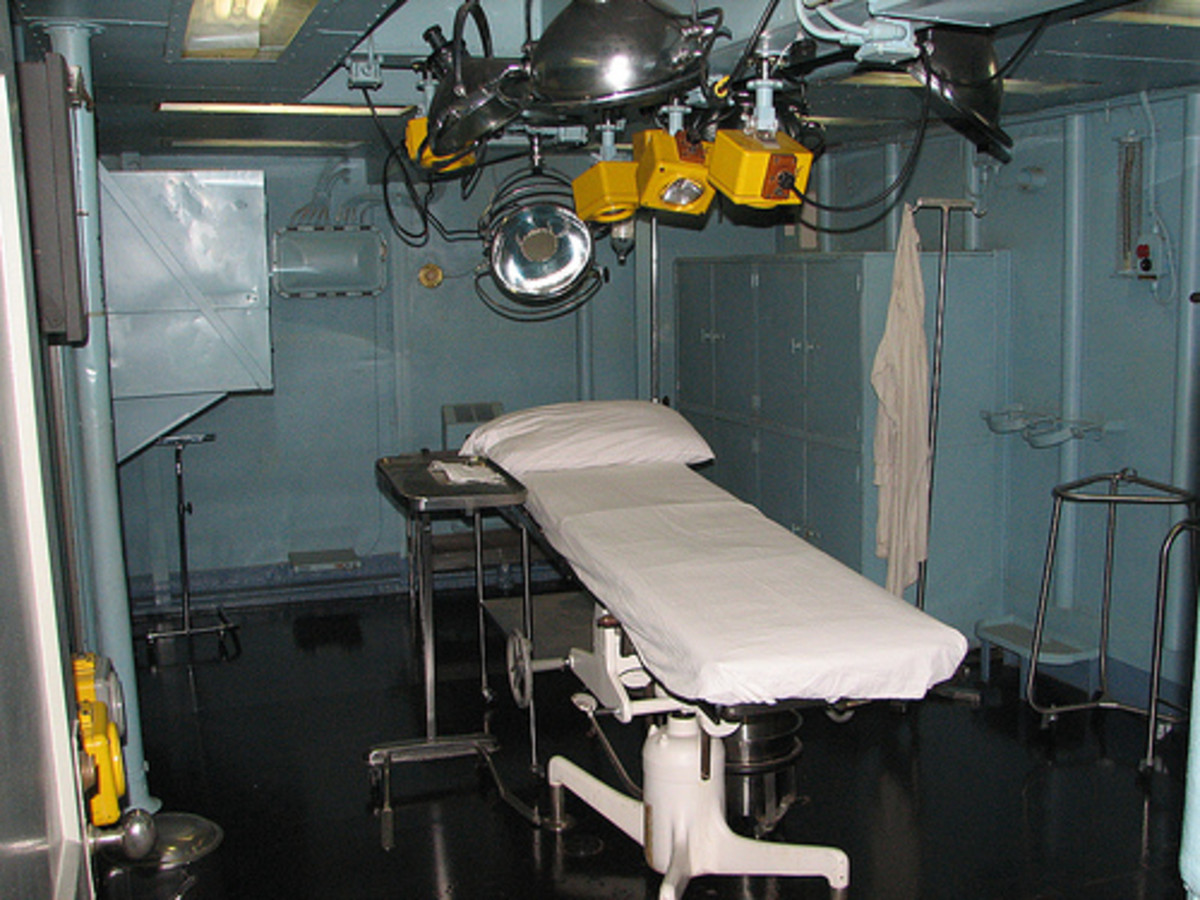When Insurance Denies Your Surgery for No Authorization
If you received a denial for no authorization from your insurance company for surgery, you are probably beside yourself with worry wondering how you are going to pay the bill. You are also probably wondering if there is any way to get the insurance company to reverse the denial and pay for the surgery. Let me assure you right now, there really is no reason for an insurance company not to pay for your surgery unless your insurance coverage terminated, you don’t have benefits for surgery, or the procedure is considered cosmetic. In some cases, surgeries that have not been authorized can be eaten by the surgeon, and you will not need to pay for the surgery.
Usually, the reason for a no authorization denial is due to a billing department’s lack of knowledge and/or laziness. With years of experience in medical collections, I always have encountered coworkers who did not understand how to perform their job. Without any hesitation many people in a billing department, when they receive a denial for any reason, automatically bill the patient without looking into the reasons why a denial was issued. I have never been unable to obtain a retro authorization for a patient, unless the patient’s insurance policy expired or the surgery was cosmetic.
The first thing to do, of course, is to call your insurance company and ask why the medical bill was denied. Ask if the entire bill is denied for no authorization. Sometimes only part of a surgery is denied. Always ask if the bill is your responsibility. If it isn't, the trouble ends right away and a conference call should be done with your provider and insurance company in order to inform the provider that they are not allowed to bill you.
No Authorization for the Entire Surgery:
It is highly unusual for a provider’s office not to obtain an authorization for a surgery unless the surgery was performed on an urgent basis, in which case the provider (surgery center or surgeon) needs to submit a request for retro authorization via mail or fax.
This is done by submitting all medical records to the insurance company, and the provider should do this since they have access to all the medical records. If your provider hasn’t done this, they are extremely lazy. If they refuse to submit a request for retro authorization, call your insurance company and inform them of the situation and request a conference call. The insurance company will explain to the billing department how to perform their job.
If, indeed, there was no authorization obtained for your surgery, it is important to realize that every provider involved (surgeon, place of surgery, anesthesiologist) didn’t bother to obtain or verify that there was an authorization for the surgery. This is why it is extremely unlikely that your procedure was not authorized. However, if this is the case, explain to your insurance company—crying helps—that you were under the impression that it was handled and authorization was obtained. Inquire as to how to get a review and approval for retro-auth and follow their instructions. If your surgery was medically necessary, there is no reason that you should not be able to obtain a retro auth.

No Authorization for Part of the Surgery:
It is not abnormal for authorization to be obtained for a surgery and once the procedure is underway, it is found that you, the patient, require an additional procedure in order to fix you, and the procedure, of course, did not have prior authorization.
Once again, your provider's billing department is lazy. This denial is easy to fix by submitting a request for a retro authorization and explaining that during the procedure it was found that the patient had an additional problem, and it required repair. Place a phone call to your provider’s billing department. It may be necessary to speak to several people by asking for a supervisor, and then the supervisor’s supervisor, etc., until you find someone who understands how to do their job.
It is important to understand that the only other alternative during the surgery would be to close you up and reschedule you for an additional surgery, even though the location of the additional procedure is in the same place. This is why that there is absolutely no reason for the additional procedure to be denied during a retro-auth review. If your provider has submitted a request for retro-authorization, and the insurance company still denies it, it is time to yell and scream at your insurance company, but do understand that the billing department should have done this for you.
Call the insurance company and keep climbing up the ladder until you find someone who knows what they are doing. It is not uncommon that customer service representatives don’t fully understand insurance and medical procedures. The requirement of a customer service position with an insurance company is the ability to read and simply relay to you the reasons for denial—anybody can do that.
Explain to the insurance company that you find it extremely ridiculous that a retro-authorization was not granted, as the alternative would be another surgery in the same location, requiring double the amount of pain, recovery time, and additional cost at the insurance company’s expense. Include in your complaints to the insurance company the possible complications, pneumonia and even death, of being put under general anesthesia. Ask the insurance company if it is customary for them to force its patients to undergo unnecessary risks and complications.
The insurance company may inform you that you need to go through a long process of appeals. This takes too long and often results in patients (and billing departments) becoming frustrated and paying a bill they shouldn’t pay for. Instead, go straight to the top and ask for the medical director’s name and obtain either a fax number or a mailing address where an appeal/complaint will be read by the medical director, not someone merely working in the medical director’s department. After you obtain this information, relay it to the provider’s billing department and ask them to resubmit a request for a retro-auth directly to the medical director.
No Authorization for an Assistant Surgeon:
It is not uncommon for a surgeon to ask his buddy to join him for surgery. Sometimes, it is done on a moment’s notice, and the patient wasn’t even aware that an assistant surgeon was present. This is a charge that you do not need to pay for. Simply call the insurance company, inform them that you were not informed there would be an assistant surgeon, and you were sleeping during the procedure. The insurance company will not make you pay for this charge. Request a conference call between the assistant surgeon’s office and the insurance company. The insurance company will inform the provider’s office not to bill you.
If you did know that the there would be an assistant surgeon, and the assistant’s bill was denied for no auth or not medically necessary, you need to have the provider appeal for medical necessity and/or retro authorization. Hopefully, your surgery was somewhat complex and should be approved during a retro-review.
When an assistant surgeon is found to be not medically necessary after review, you must yell and scream at your provider’s office. If your surgery wasn’t complex, understand that there are some types of surgeries that just do not require four hands. Chances are that your provider’s office, including the doctor, is aware of this and decided to have an assistant present just because he wanted some company. You should not be responsible for this bill.
If you have difficulty getting the charge removed by the billing department, speak to the doctor directly—your primary surgeon. Inform him that the insurance company denied the assistant surgeon’s bill, because the procedure was too simple. If by chance he disagrees, ask him to submit an appeal via dictation or to call your insurance company, as you are not well-versed in medical procedures and medical jargon, and, quite frankly, you feel a little deceived about his decision to have an assistant present. There should be absolutely no reason for your doctor not to do this for you and/or having the doctor getting the charges removed from your bill if it is denied again.
No Authorization Due To Technique:
There are some cases where a procedure will not be paid by the insurance company simply because of a surgeon’s technique. Although the surgery may have been authorized, the surgeon chose to use a technique that has not proven to be effective for the treatment of a condition.
This is your surgeon’s fault, period. He is going to have to eat this charge, period. You will not be able to obtain a retro-authorization for this technique, and your surgeon is well aware of procedures that are considered as unconventional and procedures that are conventional.
Your insurance company should have processed this denial indicating the charges should not be billed to you. If you are receiving a bill from the provider, you will need to request a conference call with your provider’s office so the insurance company can inform the provider’s office not to bill you.
If the insurance company indicates that you will be responsible for the bill, you need to find out what procedure the surgeon indicated he would be performing. If his chosen technique was not requested in the authorization request, and the insurance company still processed it as your responsibility, ask them to reprocess it indicating it is not your responsibility, because the surgeon was being deceptive by omitting the technique he would be utilizing. Unfortunately, this is entirely truthful.
If your insurance company will not do this for you (though they should), you will need to speak with your surgeon and raise you-know-what. You may need to seek the services of an attorney. Be advised that you are probably not the only patient facing this circumstance, and the doctor most likely has a long-list of patients who are in the same boat as you. You might find that the surgeon will write-off the charges, quickly, just to avoid the possibility of a lawsuit.
Lastly, with the above circumstance as well as assistant surgeon problems, you might find it worth your while to file a complaint against your doctor with the insurance company. Insurance companies have the ability to terminate contracts with physicians for any reason, especially if they receive complaints from patients against the providers. If an insurance company receives enough complaints about a particular physician, the doctor can be removed from the preferred provider list, resulting in fewer patients.








